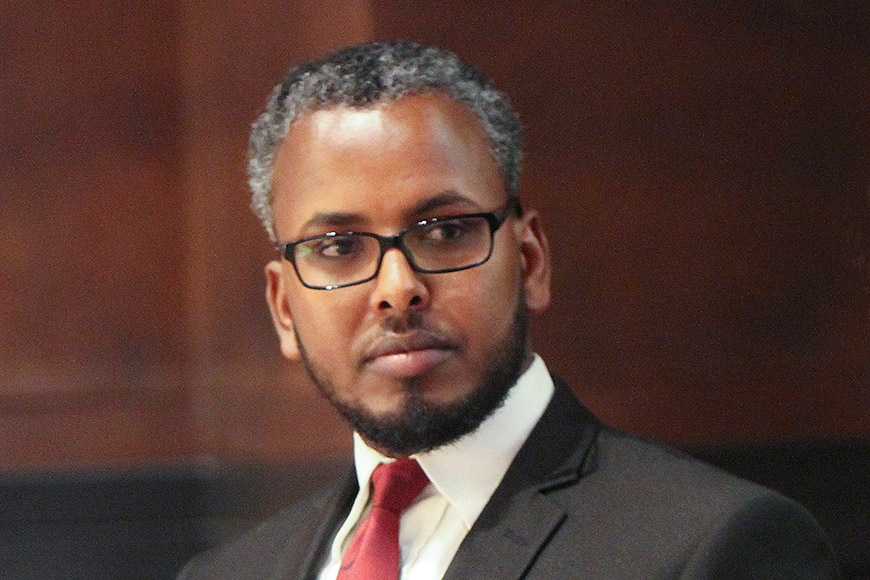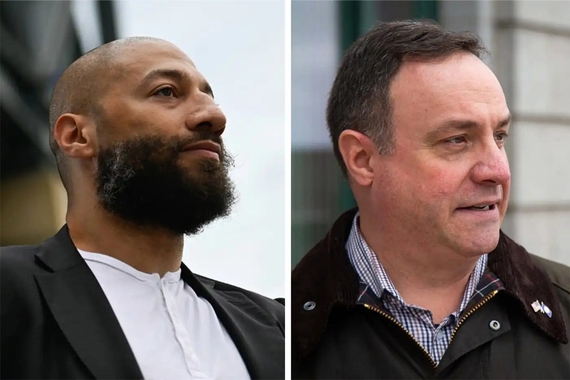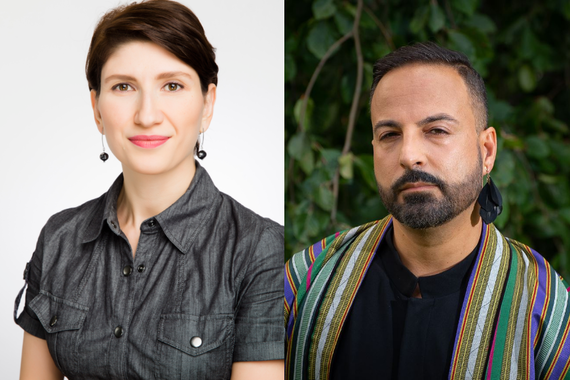From the Classroom to Government
The rigorous classroom and real-world learning that Osman Ahmed experienced while pursuing a double major in political science and global studies at the University of Minnesota gave him the skills he now uses as a coalition builder in political campaigns and in government.
In addition, his undergraduate experience gave him the necessary skills as a change agent for political action. Through courses ranging from critical international relations, to campaigns and elections, to women in politics, Ahmed learned to challenge himself while opening his eyes to new ideas.
Taking Action and Getting Involved
“In my sophomore year in college,” Ahmed explains, “I participated in Higher Education Consortium for Urban Affairs (HECUA), and they matched my interest in politics with a local nonprofit organization called TakeAction Minnesota. Throughout the HECUA programs, the practical and hands-on experiences we had in different communities in the Twin Cities opened my eyes to the differences between academic work, community organizing, and policy-initiating efforts.” Semester-long HECUA programs incorporate classroom studies, an internship, and fieldwork. TakeAction connects people and organizations to realize racial and economic equity across Minnesota.
Through this internship, he assisted TakeAction Minnesota’s political director throughout the state gaining community-organizing, communication, and relationship-building skills. Getting involved in the 2010 gubernatorial race during his internship enhanced Ahmed’s interest in politics because he was able to see who was at the table, who was doing community work, and who was pushing for policies.
During the race, Ahmed collected data on delegates, found out what issues they cared about, and found out whom they supported. He did not let the state-level campaign limit his opportunities; Ahmed also participated in national-issue campaigns around the Affordable Care Act. “It was an eye-opening experience for me because I learned so much about different issues and had to go out of my comfort zone as a student.”
“Back in 2010,” according to Ahmed, “it was rare to see someone of color or anyone that looks like me working on campaigns, advocating for policy changes, or running for office. So, I was fed up with misrepresentation in politics and policies, and started advocating and doing community organizing in underrepresented communities.” From that time on, Ahmed engaged in political organizing, community building, and advancing policies that impact his community. Now he sees many more people of color doing organizing work and looks forward to more people in underrepresented communities speaking out.
‘It Was Worth It’
The courses he took with Professor Kathryn Pearson, an expert in women and politics, congressional politics, and campaigns and elections, first sparked his interest in engaging in the electoral system. Examining gerrymandering, political organizing, and elections in Pearson’s classes fascinated Ahmed while giving him the basic knowledge he would need to navigate federal politics.
Professor Raymond Duvall’s International Relations course was the most challenging course of his undergraduate years, in part because the course was graded on only two papers and a final exam.
The course included tough writing assignments and required students to comprehend international laws, policies, and competing international relations theories. Duvall is tough when it comes to grading, but Ahmed advises, “Don’t drop this course after the first two weeks. You’ll survive and it will be worth it!” The challenges he faced in working during his courses helped to build the persistence, problem-solving skills, and determination he uses everyday.
Giving Voices to the Underrepresented
All of his experiences helped lead Ahmed to where he is now. His work amplifies the voices of the African and African-American communities in Hennepin and Ramsey Counties and informs African foreign relations by making sure that senate offices understand how different issues and policies affect people. He brings community conversations and concerns back to the senior leadership team in order to advise them on policy changes to pursue.
“I feel I am giving voices to the many underrepresented communities I work with,” Ahmed explains, “and it is really a critical role for me to be part of the senator’s team that plans, builds, and executes events, policies, and individual issues that can have huge impact on someone’s life.”
Ahmed was chosen by the College for the 2017 Emerging Alumni Award.
This story was written by an undergraduate student in CLA.


